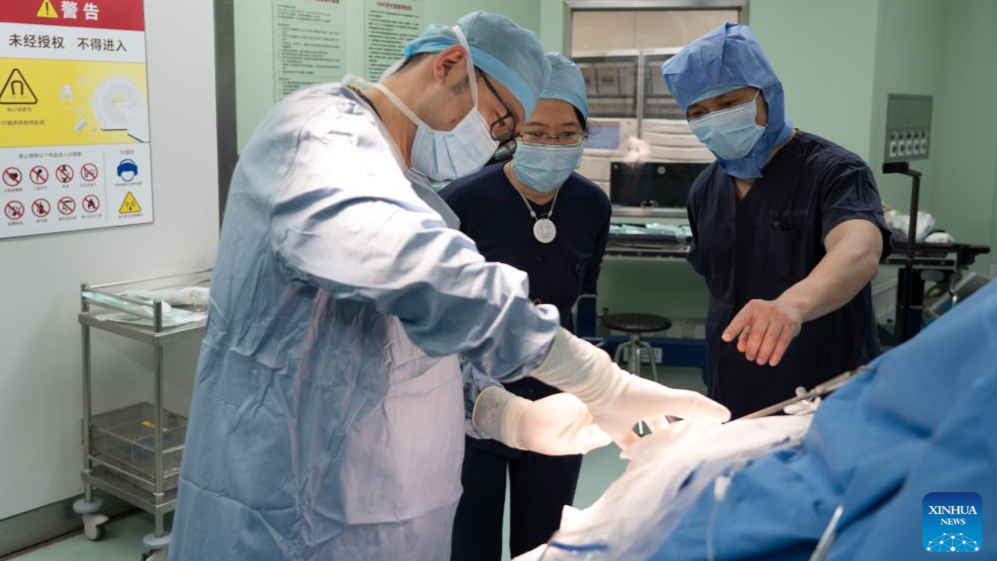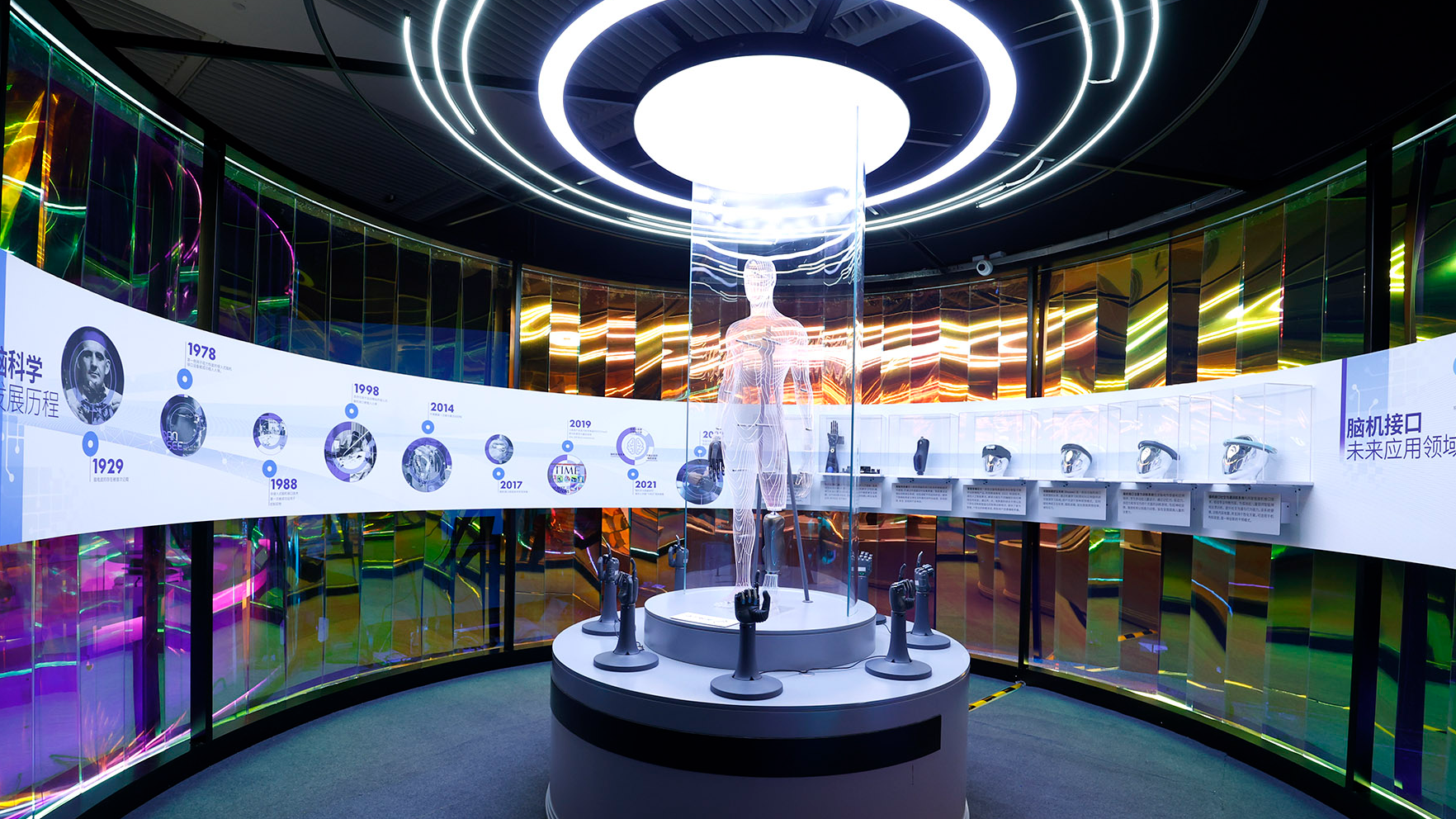
Doctors at a hospital in Guangzhou, capital of Guangdong province, have successfully performed a precise neural modulation surgery on a 12-year-old girl with drug-resistant epilepsy, by using an implantable brain-computer interface device to monitor her brain signals in real time.
The surgery, performed by doctors at Zhujiang Hospital of Southern Medical University on Monday, marked the first of its kind in South China, according to the hospital.
"By implanting a closed-loop brain acquisition and stimulation system, or ANS, it aims to precisely regulate abnormal neural activity," said Guo Yanwu, a professor from the hospital's department of functional neurosurgery.
The girl was diagnosed with epilepsy in 2016 when she was just 3 years old. After early treatment, the frequency of her epileptic seizures was controlled to once every 10 days.
However, the effectiveness of the medication diminished later, and by 2024 the girl was experiencing epileptic seizures five to six times a night.
In July 2024, she underwent a robot-assisted stereotactic electroencephalography electrode implantation at the hospital, helping to clearly identify the location of the epileptic focus. Following a surgery of partial thermal condensation damages on the lesion without affecting her brain function, the girl experienced no seizures for three months.
However, she began experiencing seizures again because part of the lesion was located in a critical brain function area and could not be completely eliminated.
The latest surgery followed a clinical trial at the hospital, which was launched in July this year, focusing on the use of an implanted closed-loop brain ANS to treat drug-resistant epilepsy while preserving brain function.

Compared to traditional therapies, the ANS technology offers significant advantages, allowing for real-time intervention by interrupting abnormal discharges during a premonitory period of epileptic seizures, according to Guo.
"It is more like an electronic doctor about the size of a matchbox was implanted under the patient's skull to monitor brain activity in real time, helping precisely intercept epileptic seizures before they occur," Guo said.
"The successful application of ANS technology signifies the beginning of a new era of precise neuro regulation in the field of epilepsy treatment," he said. "It is not only a significant breakthrough in bringing brain-computer interface technology from the laboratory to clinical operation, but also offers a new treatment pathway for patients with drug-resistant epilepsy, helping effectively reduce the frequency of seizures."
Since the girl's surgery, the hospital has planned to recruit more patients for a clinical trial study of implantable closed-loop brain ANS technologies for the treatment of drug-resistant epilepsy.
"In the future, brain-computer interface technologies could be used not only for epilepsy treatment but also for neurological disorders such as Parkinson's disease, stroke and autism by simply adjusting the stimulation patterns," Guo said.
ALSO READ: China moves ahead with research into brain-computer interfaces
China has placed great emphasis on the development of brain-computer interface technologies.
A safe and reliable industrial system will be established in the country by 2030, according to an implementation plan on promoting the innovative development of the brain-computer interface industry, issued by the Ministry of Industry and Information Technology and other departments in July.


